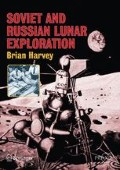Abstract
Sputnik changed everything. Most of the great historical events of our time make an immediate impact that fades over time. Sputnik was different. When the first Earth satellite was launched, Soviet leader Nikita Khrushchev calmly took the call from Baikonour Cosmodrome, thanked Korolev courteously and went to bed. Pravda did report the launching the next day, but well down the page, blandly headed ‘Tass communiqué’. In the West, the British Broadcasting Corporation announced the launching at the end of its late news bulletin, a certain vocal hesitancy indicating that neither the station nor the announcer knew exactly what to make of this strange event.
Access this chapter
Tax calculation will be finalised at checkout
Purchases are for personal use only
Preview
Unable to display preview. Download preview PDF.
References
The person who has followed tracking issues concerning early Soviet lunar and inter-planetary probes is Grahn, Sven: Mission profiles of early Soviet lunar probes; Why the west did not believe in Luna 1; Luna 3-the first view of the moon’s far side; Soviet/Russian OKIK ground station sites; The Soviet/Russian deep space network; Jodrell Bank’s role in early space tracking; Yevpatoria-as the US saw it in the 60s at http://www.users.wineasy.se/svengrahn/histind
Burchett, Wilfred and Purdy, Anthony: Cosmonaut Yuri Gagarin-first man in space. Panther, London, 1961.
The person who has carried out the fundamental research into instrumentation on Soviet lunar and interplanetary probes is Mitchell, Don P. (2003-4):-Soviet space cameras; -Soviet telemetry systems; -Remote scientific sensors at http://www.mentallandscape.com
Caidin, Martin: Race for the moon. Kimber, London, 1959.
Nesmyanov, A.: Soviet moon rockets-a report on the flight and scientific results of the second and third space rockets. Soviet booklet series #62, London, 1960; Soviet planet into space. Soviet booklet series #48, London, 1959.
Lovell, Bernard: The story of Jodrell Bank. Oxford University Press, London, 1968. Out of the zenith-Jodrell Bank, 1957–70. Oxford University Press, London, 1973.
Shevchenko, V.V.: Mare Moskvi. Science and Life, vol. 3, #88.
Rights and permissions
Copyright information
© 2007 Praxis Publishing Ltd, Chichester, UK
About this chapter
Cite this chapter
(2007). The first moon probes. In: Soviet and Russian Lunar Exploration. Springer Praxis Books. Praxis. https://doi.org/10.1007/978-0-387-73976-2_2
Download citation
DOI: https://doi.org/10.1007/978-0-387-73976-2_2
Publisher Name: Praxis
Print ISBN: 978-0-387-21896-0
Online ISBN: 978-0-387-73976-2
eBook Packages: Physics and AstronomyPhysics and Astronomy (R0)

